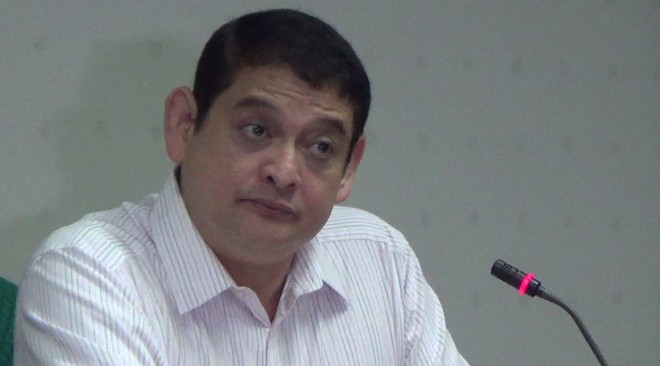Drilon worries about TG Guingona

Sen. Teofisto Guingona III. RYAN LEAGOGO/INQUIRER.net file photo
IRIGA CITY, Philippines—The Liberal Party (LP)-led coalition is concerned about the precarious position of Sen. Teofisto “TG” Guingona III in opinion surveys, Senate President Franklin Drilon admitted on Friday.
“He’s the only one among the ‘reelectionist’ or [returning] senators who is in danger of being out” of the Magic 12, the Senate leader told reporters ahead of an LP campaign rally at the Iriga City Gym here.
In the latest Pulse Asia survey, Guingona ranked in the 11th to 13th places, within the range of other candidates like Philhealth director Risa Hontiveros-Baraquel, now on her third senatorial run, and Valenzuela Rep. Sherwin Gatchalian, a first-timer.
By contrast, other familiar faces like incumbent senators Tito Sotto, Ralph Recto and Drilon, and returnees Panfilo Lacson and Francis Pangilinan, were ranked within the first five to six places, ostensibly out of reach of their rivals.
Asked why the chair of the powerful blue-ribbon committee of the Senate appeared to be struggling in the surveys, Drilon said: “I don’t know… [Guingona’s] problem is not awareness rating, but conversion [of his rating into votes].”
Article continues after this advertisementNow seeking a second term, the 56-year-old Guingona anchored his first senatorial campaign in 2010 on an anticorruption message. He used the catchphrase “galit sa buwaya” as a way to brand himself as a corruption crusader.
Article continues after this advertisementFor candidates like himself and the other incumbents, he said it was no longer a question of raising their profile among the voters as they already enjoyed high awareness rating.
“This is why you don’t see many posters of Sotto, Recto, Drilon anymore. Because ‘postering’ is only done to increase your awareness rating,” he said.
Drilon said the challenge for this type of candidate was the conversion of their popularity into actual votes on election day.
“It’s a question of branding and messaging,” he said.
In his case, he said he would rather spend his money on giving radio interviews or making TV appearances to win votes instead of putting up posters, which in the Philippines would only have a “life of two-three days” before these were taken down or pasted over.
It was for this same reason, Drilon said, that candidates only generally held political rallies when these were “media events” or covered by media.